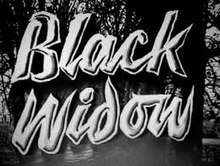
Young and Innocent, released in the US as The Girl Was Young, is a 1937 British crime thriller film directed by Alfred Hitchcock and starring Nova Pilbeam and Derrick De Marney. Based on the 1936 novel A Shilling for Candles by Josephine Tey, the film is about a young man on the run from a murder charge who enlists the help of a woman who must put herself at risk for his cause. An elaborately staged crane shot Hitchcock devised, which appears towards the end of the film, identifies the real murderer.

Christine is a horror novel by American writer Stephen King, published in 1983. It tells the story of a car apparently possessed by malevolent supernatural forces. In April 2013, PS Publishing released Christine in a limited 30th Anniversary Edition.
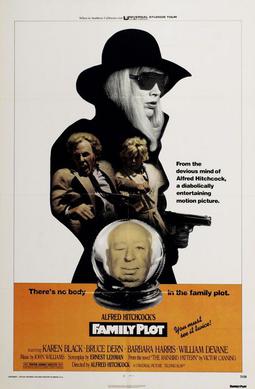
Family Plot is a 1976 American black comedy thriller film directed by Alfred Hitchcock in his final directing role. It was based on Victor Canning's 1972 novel The Rainbird Pattern, which Ernest Lehman adapted for the screen. The film stars Karen Black, Bruce Dern, Barbara Harris and William Devane; it was screened at the 1976 Cannes Film Festival, but was not entered into the main competition.

House of the Long Shadows is a 1983 British comedy horror film directed by Pete Walker. It is notable for featuring four iconic horror film stars together for the first and only time. The screenplay by Michael Armstrong is based on the 1913 novel Seven Keys to Baldpate by Earl Derr Biggers, which was also adapted into a famous play that gave birth in turn to several films.

Christine Hewitt is a fictional character from the BBC soap opera EastEnders, played by Elizabeth Power. Introduced in 1992 as a lonely divorcée, she becomes besotted with married Arthur Fowler while he tends her garden. She leaves in 1993 once her affair with Arthur is discovered by his wife Pauline.

Berlin Alexanderplatz, originally broadcast in 1980, is a 14-part West German crime television miniseries, set in 1920s Berlin and adapted and directed by Rainer Werner Fassbinder from Alfred Döblin's 1929 novel of the same name. It stars Günter Lamprecht, Hanna Schygulla, Barbara Sukowa, Elisabeth Trissenaar and Gottfried John. The complete series is 15 hours.
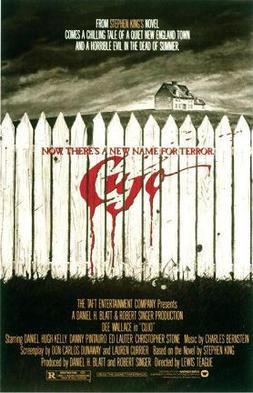
Cujo is a 1983 American horror film based on Stephen King's 1981 novel of the same name and directed by Lewis Teague. It was written by Don Carlos Dunaway and Barbara Turner, and starring Dee Wallace, Daniel Hugh Kelly and Danny Pintauro.
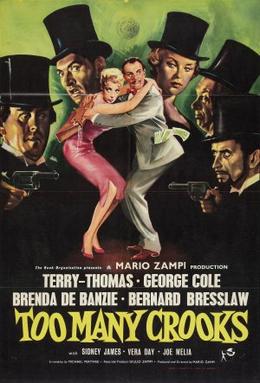
Too Many Crooks is a 1959 British black comedy film directed by Mario Zampi and starring Terry-Thomas, George Cole, Brenda De Banzie, Sidney James, Bernard Bresslaw and Vera Day.
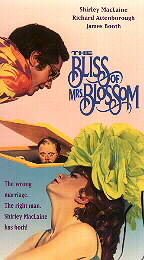
The Bliss of Mrs. Blossom is a 1968 British comedy film directed by Joseph McGrath and starring Shirley MacLaine, Richard Attenborough and James Booth. The screenplay by Alec Coppel and Denis Norden was adapted from a play by Coppel that was based on a short story by Josef Shaftel, who served as the film's producer.

Straight On till Morning is a 1972 British thriller film directed by Peter Collinson and starring Rita Tushingham, Shane Briant, James Bolam, Katya Wyeth and John Clive. It was made by Hammer Film Productions. The screenplay concerns a reserved young woman who finds herself attracted to a handsome stranger, unaware of his psychotic tendencies.

The Ringer is a 1952 British mystery film directed by Guy Hamilton and starring Herbert Lom, Donald Wolfit, Mai Zetterling, Greta Gynt, William Hartnell, and Denholm Elliott. It was Hamilton's directorial debut and the third English-language sound version of Edgar Wallace's 1929 play, which in of itself was based on his 1925 novel The Gaunt Stranger. The previous adaptations had come in 1928 (silent), 1931, 1932 (Germany-Austria), and 1938.

Hide and Seek is a 1964 British thriller film directed by Cy Endfield and starring Ian Carmichael, Curt Jurgens and Janet Munro.
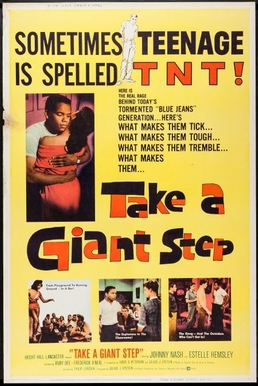
Take a Giant Step is a 1959 American coming-of-age drama film directed by Philip Leacock.
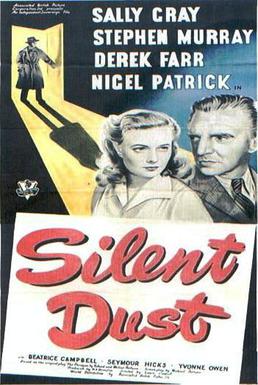
Silent Dust is a 1949 British drama/thriller film directed by Lance Comfort and starring Sally Gray, Stephen Murray, Derek Farr and Nigel Patrick. The title comes from lines in Thomas Gray's Elegy Written in a Country Churchyard (1751): "Can Honour's voice provoke the silent dust, or flattery soothe the dull cold ear of Death?" The screenplay was by Michael Pertwee, adapted from the 1948 play The Paragon by himself and Roland Pertwee.
All Neat in Black Stockings is a 1969 British comedy film directed by Christopher Morahan and starring Victor Henry, Susan George and Jack Shepherd. Based on the 1966 novel by Jane Gaskell, its plot follows an easygoing window cleaner who falls in love with a woman he meets in Swinging London.

The Fifth Cord is a 1971 Italian giallo film directed by Luigi Bazzoni. The film's Italian title reprises Dario Argento's practice of using animals in the titles of his thriller films. The film is based on a novel with the same name by D.M. Devine.

Night Without Stars is a 1951 British black-and-white dramatic thriller film directed by Anthony Pelissier and starring David Farrar, Nadia Gray and Maurice Teynac. The screenplay was by Winston Graham based on his 1950 novel of the same name. The film was produced by Hugh Stewart.

The Depraved is a 1957 British crime film directed by Paul Dickson and starring Anne Haywood and Robert Arden.

The Killer Is on the Phone is a 1972 giallo film directed by Alberto De Martino. It was released in the U.S. in July, 1975. The film is set in Bruges, Belgium, and stars Telly Savalas and Anne Heywood. The story follows an attractive actress who suffers from amnesia and paranoia triggered by a chance encounter with a professional assassin, who in turn begins to follow her with his knife.
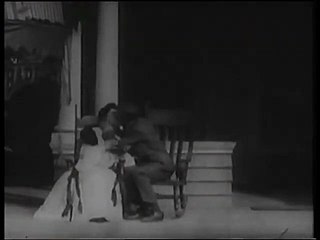
The Widow and the Only Man is a 1904 American short silent comedy film produced by the American Mutoscope & Biograph Company and directed by Wallace McCutcheon, Sr.
